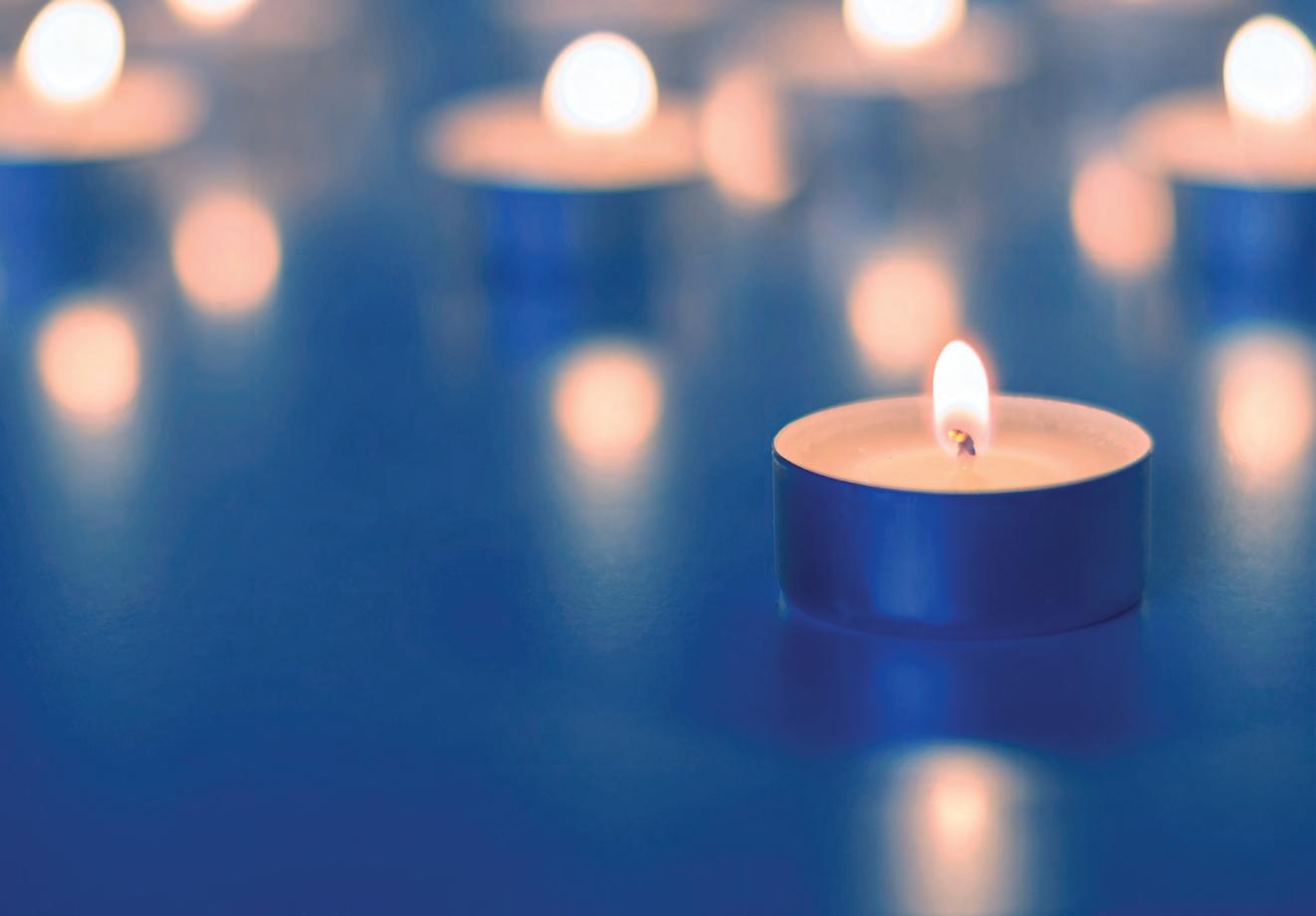








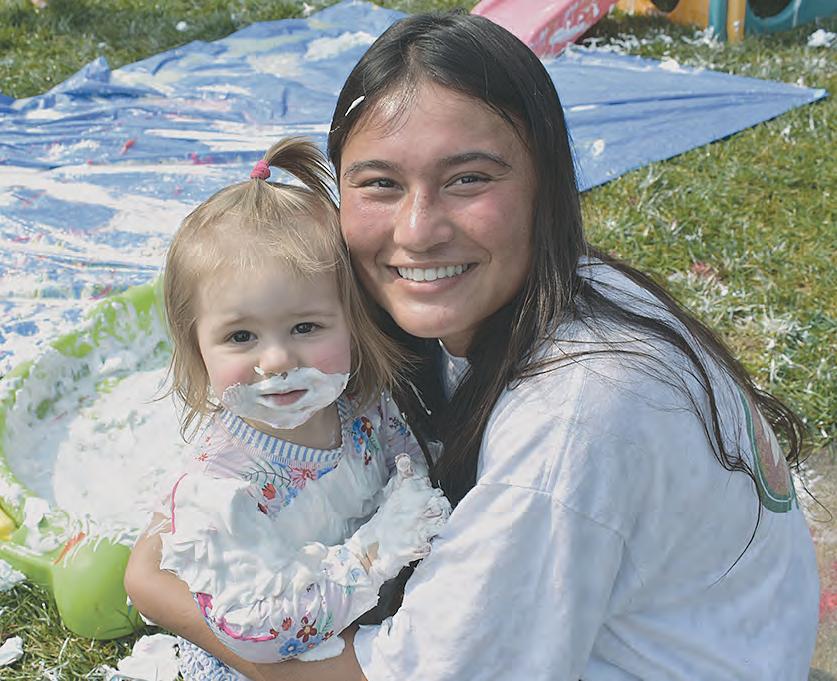
While J-Camp brought hundreds of kids to our Staenberg Kooper Fellman campus, another amazing activity-filled program took place elsewhere on
our grounds. The Early Learning Center hosted Camp Shemesh, a summer camp designed for our youngest members, including cabins, a camp flag, and a big bear in the lobby. A fake one, of course.
“We wanted our summer to feel different from regular school days,” Assistant Director See Camp Shemish page 2

CANTOR JOANNA ALEXANDER
This is the third and final part in a series from Cantor Alexander’s trip to Israel in July. Please see past editions of the Jewish Press for the first and second parts.
SNAPSHOT: MEMBER OF KNESSET GILAD KARIV - JULY 8, 2024
On July 8, 2024, we joined the many people who take Mondays to go and
LINDA POLLARD
JFO Foundation Endowment
Assistant/Staff Writer
The 2024 Albert and Eleanor Feldman Family Israel Foundation grant was awarded to the Jewish Federation of Omaha for Community Shaliach Expenses. The grant will help to pay for the basic living expenses of Omaha’s Shaliach.
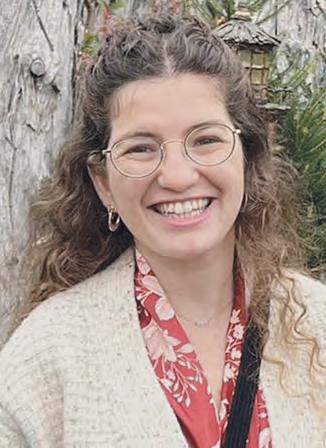
For 20 years the Omaha Jewish community has participated in the Shaliach program. The community has benefited greatly over the years from a diverse group of young men and women who have shared their talents and knowledge with Omaha. The shlichim have created greater connections between Omaha and Israel. For the people who may never visit Israel, the Shaliach offers first-hand knowledge of Israel, its people, food and culture. Currently the Federation has a Shlicha, Mika Mizrahi, who will be starting her second year in Omaha this September.
The award, which helps to pay for the Shaliach’s living expenses, includes apartment rent, vehicle lease, gas, phone and Wi-Fi. By doing so, other funds are freed up for on-going and additional programming to be offered to the Jewish community. Increased programming would include additional and expanded programming around the Jewish holidays. The end objective is to grow the Shaliach’s community involvement and bring more people into the Jewish community, with higher participation and satisfaction among Omaha’s Jewish population.
lobby at Kenesset. As a group of Reform Cantors from around the country, we were able to arrange to meet with a member of Kenesset, Rabbi Gilad Kariv, the only Reform Rabbi ever to hold a Kenesset seat.
MK Kariv is a member of the Democratic party (formerly Labor). He is left-wing, and spent his earlier Rabbinic and Lawyer career at the Israel See Snapshots from Israel page 3
Jay Katelman, Corporate Development Leader, said, “We are so very thankful for the Feldman Foundation for continuing to support our community Shaliach. The grant helps cover many needs, and frees up our Shaliach to focus on providing more programing and community events that help connect Jewish Omaha to Israel.” See Felman Family Grant page 3
Continued from page 1
Amy Dworin said. “And of course, we wanted it to be amazing and so much fun! We created a wilderness, foresty vibe, with national park-themed shirts and an actual camp song, a Fourth-ofJuly parade, and lots and lots of singing. We tried to hit all the traditional summer camp staples, while keeping everything we did play-based.”
Kids went to cabins instead of classrooms; they met at the flagpole and celebrated Shabbat every Friday. An international mud day was planned, but sidelined by a typical Nebraska thunder storm.
“We pivoted and did an indoor beach bash instead,” Amy said. “We went hunting for seashells, had a sensory water balloon fight (minus the water) and mimicked hot tubs by setting out baby pools indoors.”
There were dirt cups (chocolate cake with gummy worms) and seafoam bubbles, all while tiki music set the mood.
It was a great opportunity to widen kids’ experiences, and allowed them to experiment, use their imagination, and, at times, get messy.
“Our color war was the best thing ever,” Amy said. “Many of our kids really came out of their shells during that week. And in some cases, entire families got involved; they even took pictures of parents and

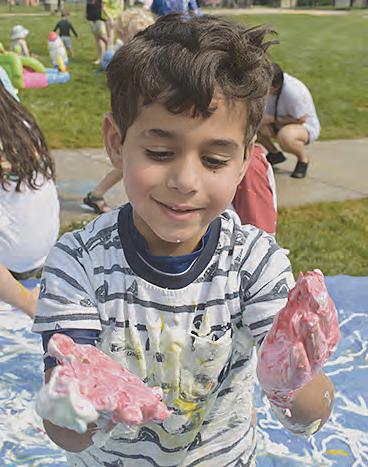

siblings wearing their kid’s team color.”
Five teams (orange/yellow, green, blue, red and purple) ‘battled’ it out during a week that included many outdoor activities. There were bubbles, there were sprinklers, there was foam-meetsfood coloring, and luckily, the weather cooperated.
While the summer enrollment at the ELC is slightly smaller than its regular number of 160, it’s not by much. During Camp Shemesh, kids of different ages were paired in the same ‘cabin,’ allowing them to interact beyond their immediate age group. When they partner, Amy said, “the older ones begin to understand what it means to be a leader, have responsibility and to be proactive. They learn to ask ‘How can I help?’, they learn to care for others, and that is a skill they can use everywhere. It also allows them to recognize their own behavior, and learn how it affects others. The younger kids in turn learn what it means to be a community, and build relationships beyond their own space.”
Summer is also a time to plan ahead. Having no regular programming allows time for teacher coaching and setting goals for the upcoming school year. Plans are in the works for the holidays, for collaborations with clergy and more family events. Stay tuned for what’s next at the ELC!
MELANIE SCHWARZ Jewish Press Intern
Forbidden - A 3000-year history of Jews and the pig by Jordan D. Rosenblum chronicles the history between the Jews and the pig, and why it is forbidden for Jews to eat pig. Jews do not eat pig. This (not always true) observation has been made by both Jews and nonJews for more than 3,000 years and is rooted in biblical law. Though the Torah prohibits eating pig meat, it is not singled out more than other food prohibitions. Horses, rabbits, squirrels, and even vultures, while also not kosher, do not inspire the same level of revulsion for Jews as the pig.
The pig has become an iconic symbol for people to signal their Jewishness, non-Jewishness, or rebellion from Judaism.
There is nothing in the Bible that suggests Jews are meant to embrace this level of pig-phobia.


Starting with the Hebrew Bible, Jordan D. Rosenblum historicizes the emergence of the pig as a key symbol of Jewish identity, from the Roman persecution of ancient rabbis, to the Spanish Inquisition, when so-called Marranos (“Pigs”) converted to Catholicism, to Shakespeare’s writings, to modern memoirs of those leaving Orthodox Judaism.
The pig appears in debates about Jewish emancipation in eighteenth-century England and in vaccine conspiracies; in World War Il rallying cries, when many American Jewish soldiers were “eating ham for Uncle Sam;” in conversations See Jews and the Pig page 4
It’s not o late register - h e see y there!
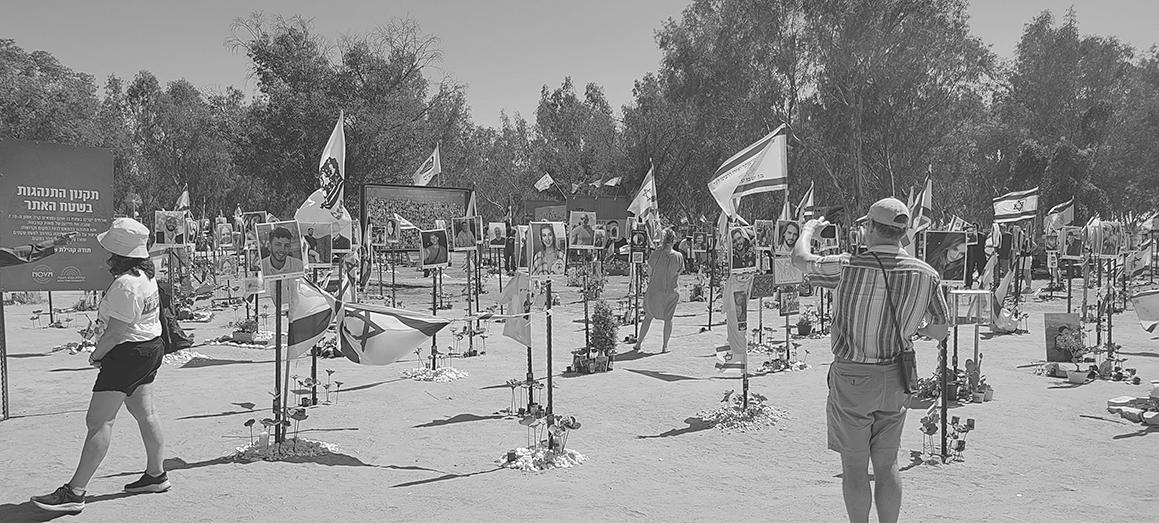
Continued from page 1
Religious Action Center, fighting for pluralism and democracy. He disagrees with Netanyahu and the coalition on most everything. He ended the meeting saying he had to go yell at the Prime Minister.
The message he shared regarding the existential threat Israel faces was sobering. He stated comparing Oct. 7th to the Yom Kippur War misreads the intentions. In 1973, Sadat of Egypt knew they needed a mild victory to create a space for negotiations to regain territory and pride. The situation today is more similar to 1948. We need to understand that Israel is surrounded by Jihadists funded by Iran: they do not have aim for political gain, or to balance previous land gains. They aim to block political gains like the Saudi Abraham accords. Iran is the funder and instigator of at least six fronts that Israel is facing: Gaza, Hezbollah in the north, the Houthis in Yemen, the border between Iraq and Jordan, and Syria’s Assad regime. I found this analysis and the reality of Iran’s hold on all of Israel’s borders to be quite terrifying. As a pluralist, I loathe to blame religion as the cause of war, though I do believe it is often used as an excuse or to whip up support.
the Jews? But the reality is that my desire to find humanity and Godliness in everyone colors my ability to sustain a view of evil. This may make me naïve, but I also believe it allows me to bring more hope into the world, so it is a choice I will keep making.
The lessons of Grisha and MK Kariv were so similar, the existential threat being posed on the borders of Israel was made so much more real. My personal loss of knowing how I would wish to combat this kind of (violence is winning) mindset, left me fearful and awash at sea. Refusing to believe in evil does not negate its existence, and it will hinder the ability to combat it. And yet... there are human beings, babies, and children who are paying the price for the evils they were born near. How, for me, can we balance these realities?
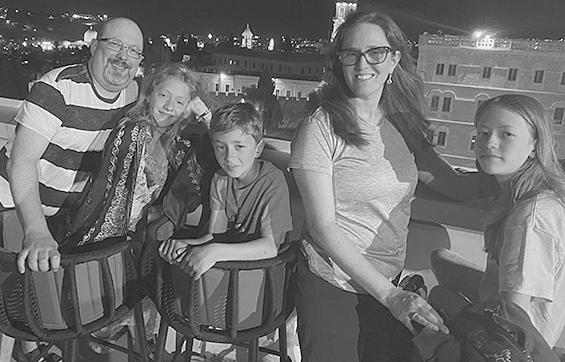
SNAPSHOT: THE SITE OF NOVA – JULY 9, 2024
The earth was scorched in the road. There were memorial pillars and trees. There was the sound of artillery, the assurance that is the sound of “the good guys.” The knowledge that this sacred space continues to be witness to the sound of others’ death. The message from soldiers who overheard our memorial prayers, praying for us as Americans seeing the danger we live in.
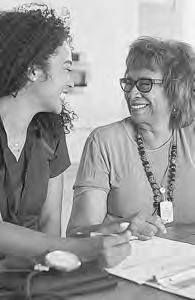


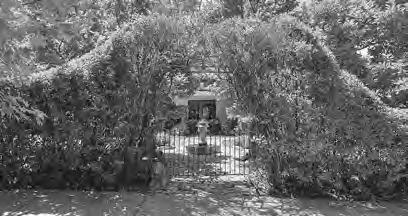
But what does this mean? Is Iran fighting a power game or a religious game? Fundamentalist Islam is being used to motivate people to fight against Israel, and to let their people die in the name of that war. How can Israel or any nation that desires and values universal humanism defend against an enemy that uses this humanism against them?
SNAPSHOT: THE GAZA ENVELOPE—JULY 9, 2024
The next day our mission was brought on a tour of the Gaza envelope. Our first stop was to the city of Sderot with tour Guide Grisha Yakubovich. Grisha describes himself as the last Israeli Mayor of Gaza City. He was the military head in 2005 before the Israeli army pulled out of Gaza. As the head, he knows the city very well, from a street level and security level, he feels he knows the people well and had to navigate all the “politics” that come with being the head of the occupying government on the ground. Today he is a government consultant, and a business entrepreneur partnering with Palestinians of the West Bank. But he is no bleeding-heart liberal, as a speaker for our group, he was one of the most uncomfortable speakers I heard. The way he understands Israel and Palestine helped explain the polling we have access to. No one in my orbit had satisfactorily explained why Hamas is more popular now than it was Oct 6; I would ask myself, don’t they understand Hamas is to blame for the current misery? Grisha taught us how every action since Hamas took over Gaza has taught the people that they are winning. They send rockets, Israel responds heavily. Israel believes they have won, because they destroyed some important infrastructure and are ready for the cease-fire the world has pushed. Every cease-fire grants Hamas more freedom and, importantly, more money. Over the course of the last nearly two decades, the violence of Hamas has gained international concessions, monetary support, and a sense of pride for the Palestinian people. Meanwhile, the pacifism of the Palestinian Authority in the West Bank has gained none of this and more land has been taken for settlements, etc. Learning of this mindset, taking it in, and questioning in my own mind if this was logical, if this was possible, and if this made political and human sense was extremely difficult for me, and for my Cantorial friends. Could we accept that the human beings that we feel for would choose violence, including the death and destruction of their own lives, over peace for this perception of winning? This story is one that was very hard to hear. I do not know if I wish to fully believe it, but it does explain something that I previously had no explanation for. You may think me naïve, didn’t she already know they just want to kill
I left the mission one day early to meet my family at the airport. We were set for a first-timer’s trip: visiting the Kotel, Massada, the Dead Sea, museums, archeology, hikes, and the Mediterranean Sea. My tour group arranged for a driver to take me from the Otef, the Gaza envelope, to the airport to pick up Jacob and the kids.
The driver introduced himself and told me he was a Nova survivor. This was his first time back to the area. As we drove, he told me where he drove his car into a field, where he turned around, and where the car’s wheels exploded. He and his wife had to get out, he could picture every curve and every bush as it had been that day nine months before. I don’t know how he lived through it. I don’t know how they got to safety. He told me all the friends they went to the festival with died. He and his wife have no idea who to designate the care of their children if they are to die in the future.
This space of death turned into the story of the life of a human right in front of me. The sound of artillery made the lives of “the enemy” and also the innocent so close and present. How does one go on hoping for a peaceful resolution? How does one find comfort in compromise that threatens the future peace? How does one find comfort in the strength of arms that damages the dreams of the next generation? In the place of their deaths at the Nova site, are ceramic Red anemone flowers, symbolizing the desert in full bloom and the lives cut short. New trees have been planted, as the Jewish community brings life from a place of death.
From the postcard of Maoz Inon: “I forgive the past and I forgive the present, but I won’t forgive anyone for ruining our future.”—Hamze Hawawde
Thank you for allowing me to share snapshots from my Cantorial Mission to Israel.
Continued from page 1
“The Shaliach Program is fundamental to the mission of the Albert & Eleanor Feldman Family Israel Foundation, which is to foster the connection between the Omaha Jewish Community and Israel. Our father, Albert Feldman (of blessed memory), would be extremely proud of the continuing legacy of his vision to maintain this connection,” stated Jodi Fleishman.
The Jewish Federation of Omaha Foundation is proud to help further the goals of the Albert & Eleanor Feldman Family Israel Foundation.
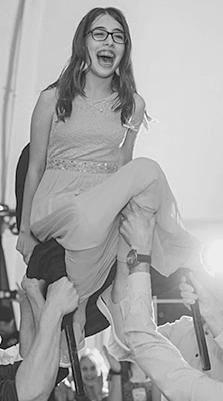










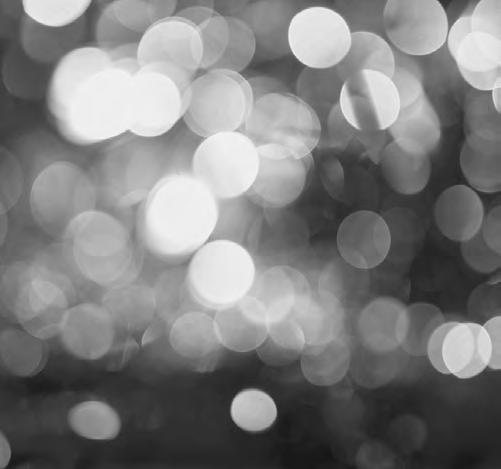

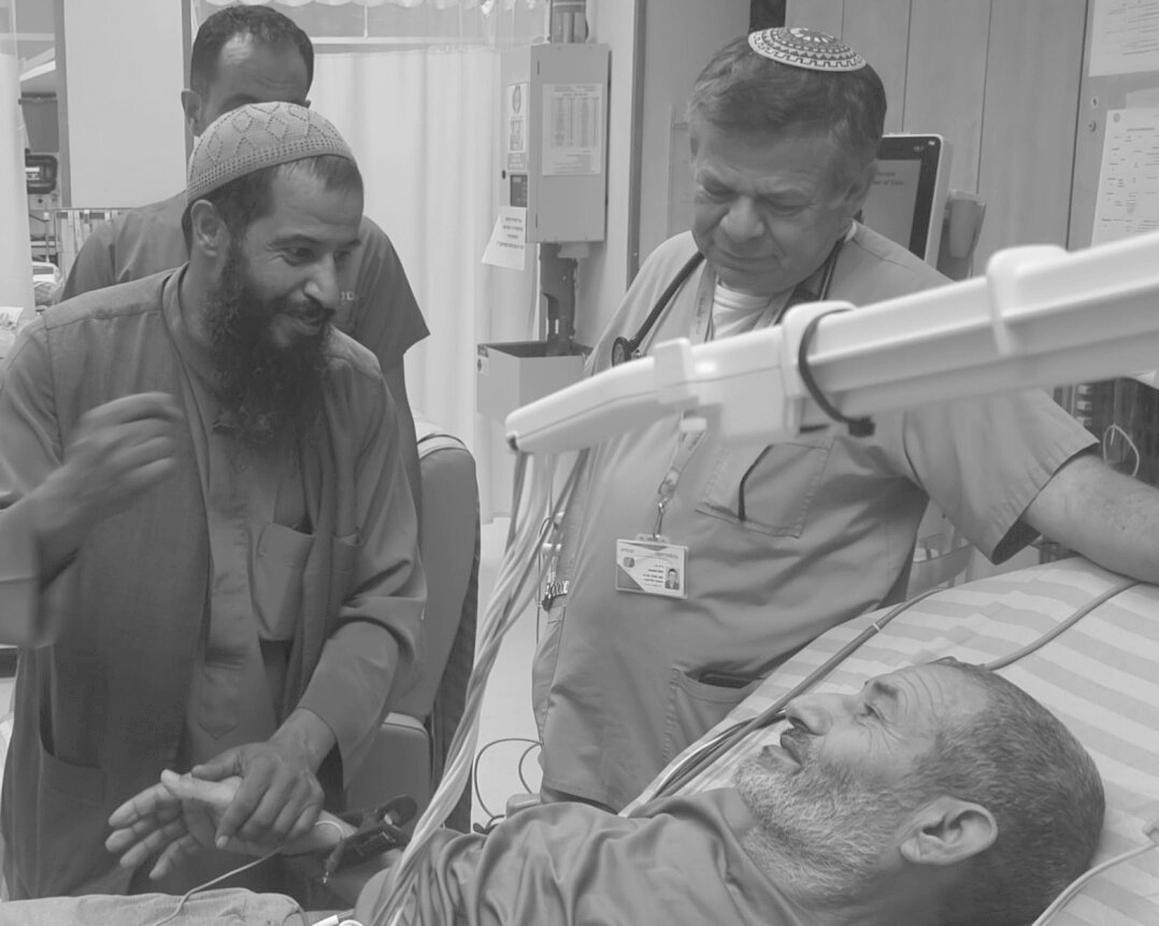
JTA
Israeli troops have rescued an Israeli hostage from southern Gaza, the military announced Tuesday, August 27, the eighth captive held by Hamas to be brought back alive by Israeli forces since October 7.
Qaid Farhan al-Qadi, 52, a Bedouin Israeli and father of 11 from the southern city of Rahat, worked as a security guard at Kibbutz Magen on the Gaza border and was captured by Hamas terrorists during their Oct. 7 attack. He was one of several Israeli Arabs to be taken hostage.
Al-Qadi was rescued Tuesday morning by Israel’s elite Shayetet 13 unit from a tunnel and has been brought to a hospital for examination. Israel reported that his condition is stable but has released few details regarding the military operation.
“Today, the IDF and ISA rescued the hostage Qaid Farhan Alkadi, aged 52, from Rahat, who was abducted by the Hamas terrorist organization into Gaza on October 7,” the Israel Defense Forces said in a statement. “Israeli security forces will continue to operate with all means to bring home the hostages.”
The rescue operation comes more than two months after Israeli troops rescued four hostages in central Gaza in early June, among them the festival-goer Noa Argamani who had become a symbol of the crisis. In total, Israel has rescued eight hostages in four separate operations. More than 100 were freed in a ceasefire deal in November, shortly after the war began.
Israel has also retrieved the bodies of some of the hostages who have been killed in Gaza, including six that were brought back in an operation last week. An examination of the hostages’
Continued from page 2 about pig sandwiches reportedly consumed by Karl Marx; and in recent deliberations about the kosher status of Impossible Pork.
All told, there is a rich and varied story about the associations of Jews and pigs over time, both emerging from within Judaism and imposed on Jews by others. Expansive yet accessible, Forbidden offers a captivating look into Jewish history and identity through the lens of the pig.
The book is broken down into six chapters, plus an introduction and a conclusion. It includes a variety of illustrations that help enhance the story, and give useful insight with the examples. Forbidden will be released in October.
bodies indicated they had been shot while captive in Gaza. Israel estimates that slightly more than 100 hostages remain in Gaza, with at least 34 thought to be dead. Families of hostages and their supporters have rallied for a ceasefire deal that would free the remaining hostages, but talks between Israel and Hamas have stalled repeatedly and are now reported to be moving slowly.
“Qaid’s return home is nothing short of miraculous,” the Hostage Families Forum, a group representing many of the captives’ families, said in a statement on Tuesday. “However, we must remember: military operations alone cannot free the remaining 108 hostages, who have suffered 326 days of abuse and terror. A negotiated deal is the only way forward. We urgently call on the international community to maintain pressure on Hamas to accept the proposed deal and release all hostages.”
The Israeli military’s top spokesman, Daniel Hagari, drew criticism from a source widely believed in the Israeli media to be Prime Minister Benjamin Netanyahu last week when Hagari cited rescuing hostages as the “central war goal” without listing the other goals of dismantling Hamas and removing security threats as equal.
In December, al-Qadi’s brother and son traveled to Los Angeles to speak in front of a mural painted to raise awareness of the hostages. While there, they met with local officials and Muslim leaders to press for the hostages’ release. While he was in captivity, he had a grandson born to him.
“I can’t explain this feeling, it’s better even than the arrival of a new baby,” one of his brothers told Israeli media on Tuesday. “Thank God, we are thankful to everyone and we hope to see him soon healthy. We’re so happy, very happy to get this news.”
Jordan D. Rosenblum is a Professor of Religious Studies, University of Wisconsin-Madison, where he is also the Belzer Professor of Classical Judaism at the Mosse/Weinstein Center for Jewish Studies. He is the author of many books, including Rabbinic Drinking: What Beverages Teach Us About Rabbinic Literature, The Jewish Dietary Laws in the Ancient World and Food and Identity in Early Rabbinic Judaism and co-editor of Feasting and Fasting: The History and Ethics of Jewish Food
The Jewish Press Summer Internship is made possible through the generosity of the Chesed Fund (formerly the Murray H. and Sharee C. Newman Supporting Foundation).
The women of Beth El will join together for a “Women’s Night Out” to kick-off the 2024-25 season for The Miriam Initiative. The party is scheduled for the evening of Thursday, Sept. 26, at 7 p.m. in downtown Elkhorn.
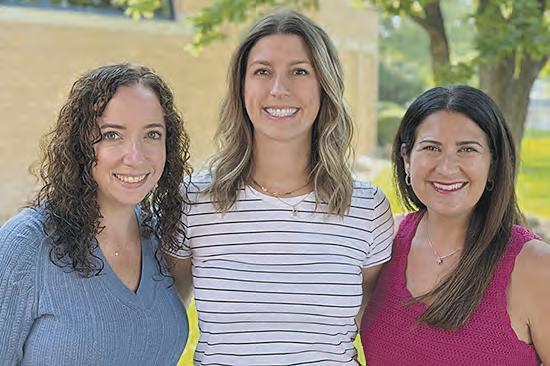
The Miriam Initiative, which was founded in 2017, is a series of ongoing projects and programs created and presented by the women of Beth El Synagogue. No president. No board. No executive committee. No two-year terms. No by-laws. No monthly meetings. Just a chairperson or co-chairs for each project working in partnership with a designated synagogue staff person. Founding member Joanie Jacobson continues to ensure the success of The Miriam Initiative and encourages synagogue members to get involved with the events. Women’s Night Out is co-chaired by Jess Cohn, Laurie Epstein, and Pam Berkowitz. The co-chairs collaborated to plan a fun social gathering with kosher wine and light bites, catered by Beth El’s own Chef Mike Newell. As Jess Cohn explains, “I am excited to bring together multigenerational women for a social evening. Back to school tends to be a busy time, but taking time to connect with friends will be a fun night.” Women’s Night Out is free of charge. However, space is limited so reservations are required. Register online at http://www.bethel-omaha.org. by Sept. 12, 2024
In the wake of the October 7 massacre, rising antisemitism worldwide, and a polarizing presidential race, Jews of all backgrounds feel isolated, divided, and in desperate need of spaces for respectful discourse. Sensing an acute need to address this issue among Jews, Rabbi Jeffrey Salkin, Dr. Sandra Lilienthal, and Rabbi Ed Feinstein founded Wisdom Without Walls (WWW), an innovative online salon for Jewish ideas bringing content to people’s homes through virtual conversations.
Rabbi Salkin and Dr. Lilienthal now co-lead the organization. Their nimble Jewish startup is healing divisions among Jews through virtual conversations with leading Jewish scholars, authors, and musicians.
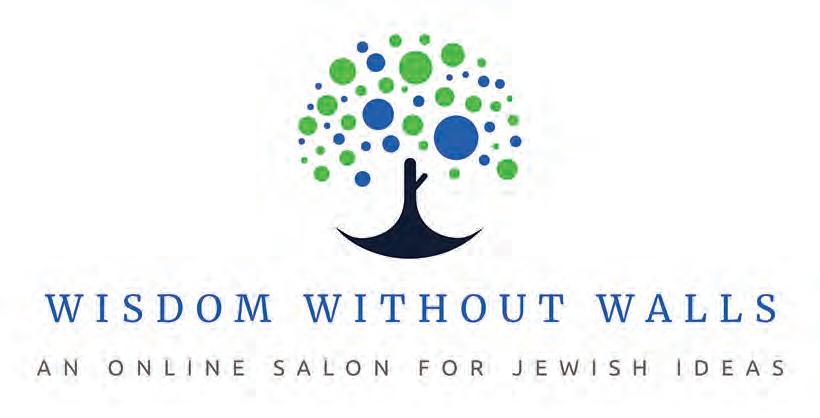
“People are starved for intellectual and social engagement,” says Dr. Lilienthal, a Jewish educator with a doctorate in Jewish education. “We asked ourselves, how can we address that Jewishly?” Thus, WWW was born.
Rabbi Salkin, author of numerous books on religion and spirituality, adds, “Wisdom Without Walls is our way to share Jewish wisdom in the digital age.”
Twice per month, WWW hosts a 90-minute conversation featuring prominent names and minds in the Jewish world. These conversations have been sold out, often with waiting lists. Upcoming sessions include renowned author Tablet Senior Editor Mark Oppenheimer (Oct. 29), and Grammy- and Emmy-nominated singer-songwriter Peter Himmelman (Dec.
18). Past conversations have featured Rabbi Yitz Greenberg, Dr. Jonathan Sarna, and Dr. Rachel Korazim. A complete list of upcoming conversations is available on the website. The founders intentionally chose the words “conversations.” “Each session is just that-a conversation,” says Lilienthal. Salkin adds, “We don’t have speakers. Our conversation leaders listen as much as they speak, and we intentionally keep the number of registrants to less than a few dozen-so participants have the opportunity to interact not only with our conversation leaders but with each other.” According to Salkin and Lilienthal, Jews living in major cities like New York and Chicago, can attend any number of lectures and programs given by big name speakers. However, that doesn’t mean they will interact with them. “Our conversations guarantee that you will,” says Lilienthal. And, their conversations deliver content to small Jewish communities who otherwise wouldn’t get prominent speakers. Salkin adds, “Wisdom Without Walls levels the intellectual playing field and allows our conversation leaders the opportunity to get to places they probably wouldn’t visit on an in-person tour.”
By creating an online space for thoughtful dialogue and diverse perspectives, WWW provides a much-needed antidote to the divisiveness and isolation plaguing the Jewish community. To join a conversation or speak with one of our leaders, please visit wisdomwithoutwalls.org

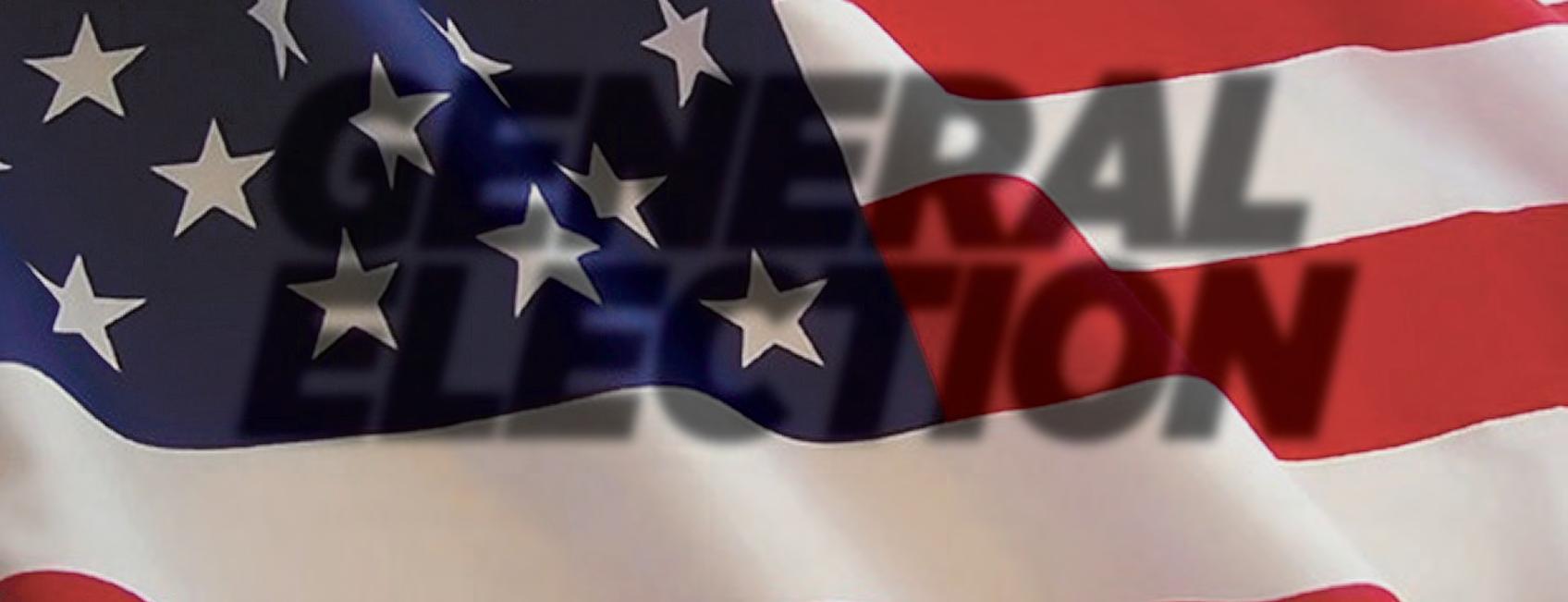

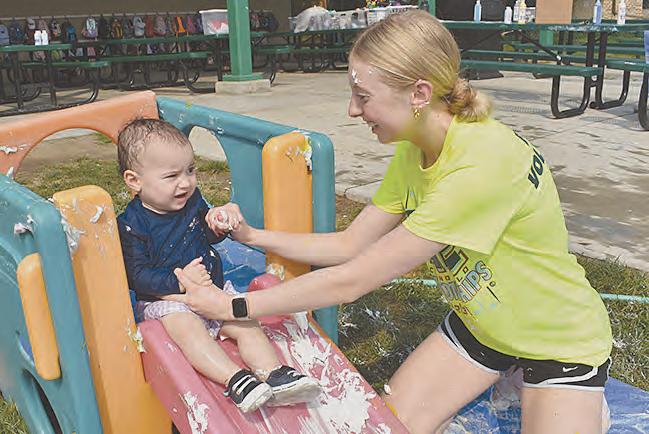
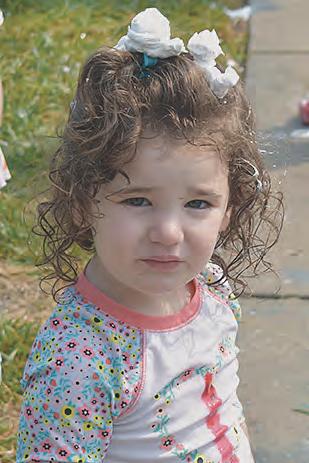
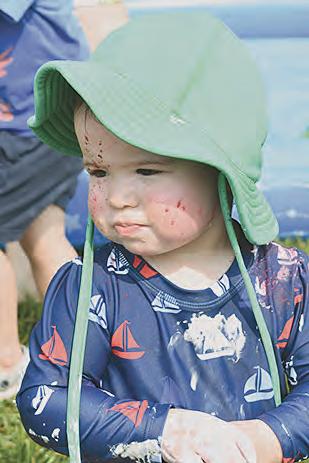
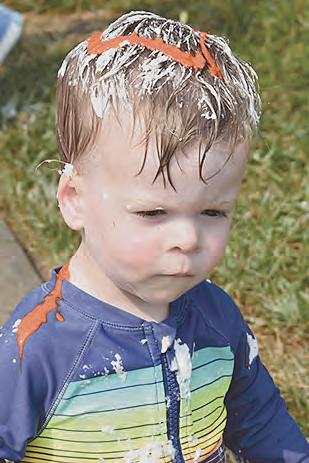
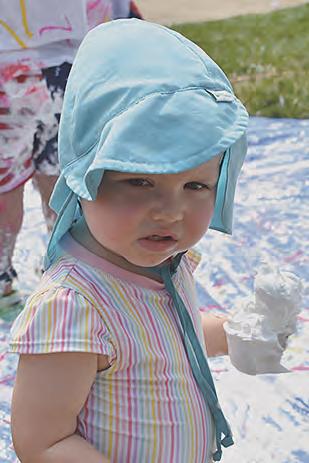
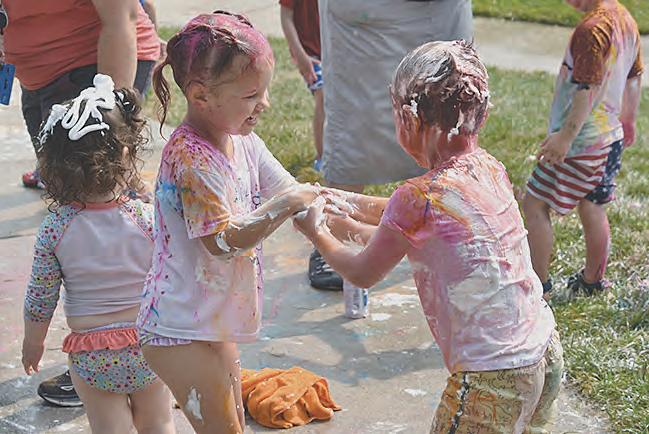


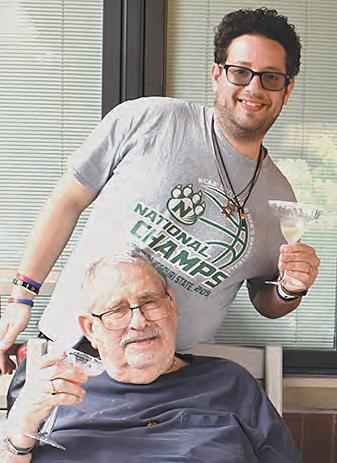


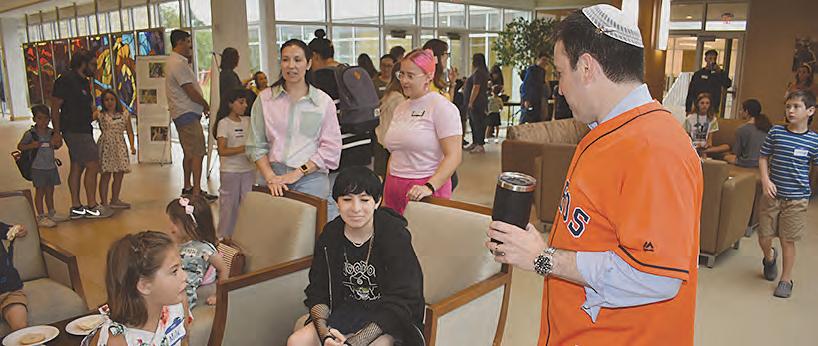
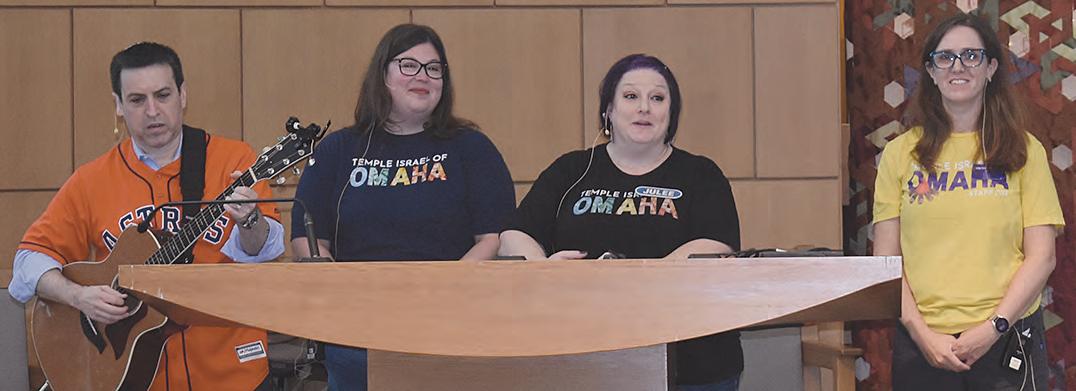
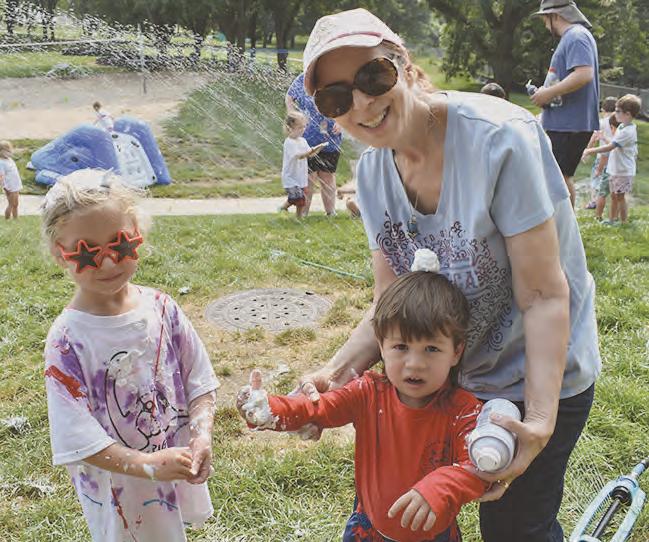
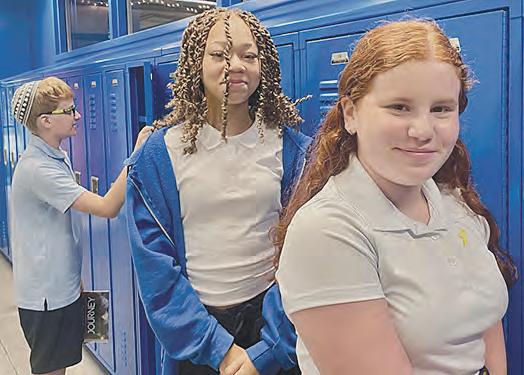
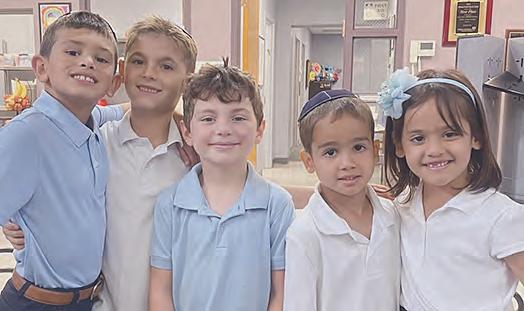
ANDREW LAPIN
JTA
Around one-third of non-Jewish college students embraced patterns of ideas hostile to Jews or Israel during the 2023-24 academic year, according to a new study by Brandeis University researchers.
The study, published Thursday by the university’s Maurice and Marilyn Cohen Center for Modern Jewish Studies, helps paint a clearer picture of the attitudes undergirding the widespread tensions over Israel and Gaza that spread across campuses last year, leading to disruptive protests and university crackdowns.
It found that about 15% of students surveyed were hostile to Israel, with many believing, for example, that Israel has no right to exist. It also found that nearly a quarter of non-Jewish students overall said they did not want to be friends with people who support Israel’s existence as a Jewish state, a stance the survey said had the effect of “ostracizing nearly all of their Jewish peers.”
But Saxe cautioned against reading into the percentage of students who endorsed any one specific statement, saying that focusing on patterns of belief was more instructive.
“I worry when people get caught up in the specific percentages,” said Saxe, the director of Brandeis’ Jewish studies center
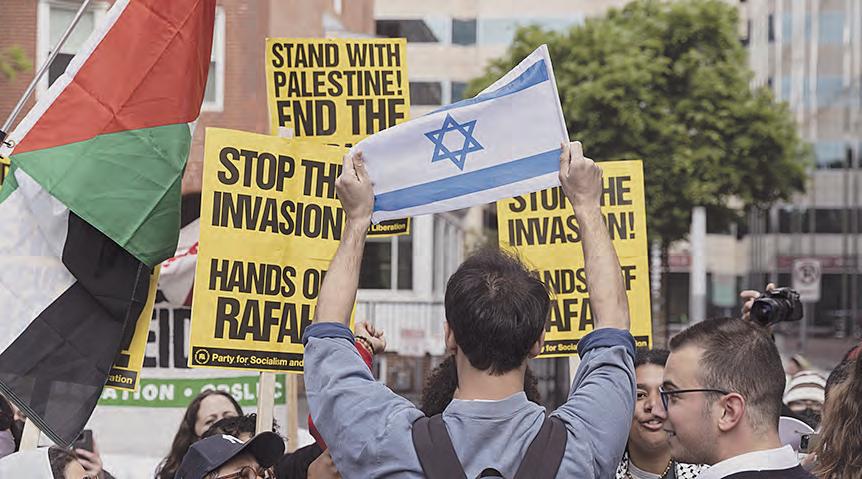
The survey found that 16% of non-Jewish students were hostile to Jews but not to Israel, believing in enduring antisemitic ideas such as that Jews have too much power in America. Two percent of respondents were hostile to both Jews and Israel, and exhibited the highest rate of antisemitic attitudes. Most non-Jewish students, 66%, were not hostile to Jews or Israel, the survey said.
Len Saxe, the study’s co-author, said dealing with campus antisemitism is “a solvable problem,” but that universities and the Jewish community need to do a better job of understanding the varied ways in which non-Jews think about Jews and Israel. “We do not find a climate of universal anti-Jewish hatred, nor do we find that Jewish students’ concerns about antisemitism are unfounded,” Saxe and his co-authors write in their conclusion. “Instead, we find that Jewish students’ experiences of a hostile environment on campus is driven by a minority (but significant share) of students who hold patterns of beliefs that are hostile toward Israel and/or Jews.”
The researchers also asked about whether students engaged in pro-Palestinian advocacy on their campuses, offering a quantification of participation in the protests that grabbed headlines last year. They found that 17% of students reported attending an event supporting Palestinians last year and 23% reported posting pro-Palestinian content on social media. Nine percent reported engaging in pro-Israel activity either in person or on social media.
The survey found that progressive beliefs and support of the idea that “all land seized through colonization should be returned to indigenous peoples” had strong correlation with hostility to Israel. Nearly 90% of those classified as hostile to Israel, but not Jews, identified as liberal or very liberal. Those classified as hostile to Jews, but not Israel, were more politically diverse: 16% were conservative, 31% moderate and 53% liberal or very liberal — similar to the overall breakdown of students’ political identities.
The study builds off earlier research at Brandeis that found a majority of Jewish students have perceived a hostile campus environment since Oct. 7. It also joins a recent survey by Tufts University political scientist Eitan Hersh that found that Jewish students feel more social pressure to take a stance on Israel, and that while some are actively hiding their Jewish identity, a larger number are more actively asserting it.
Saxe and co-authors Graham Wright, Sahar Hecht and Sacha Volodarsky set out to determine how prevalent anti-Israel and anti-Jewish attitudes are among non-Jewish college students.
They polled just under 4,000 non-Jewish undergraduate students across 60 schools with large Jewish populations during the spring 2024 semester, asking them whether they agreed with a list of statements perceived as hostile to Jews, Israel or both.
Among the beliefs the survey put forward, 19% of non-Jewish students said that “Israel does not have the right to exist” and 24% agreed that “I wouldn’t want to be friends with someone who supports the existence of Israel as a Jewish state.” Seventeen percent said they had a favorable view of Hamas. Another statement, that “supporters of Israel control the media,” was endorsed by nearly 43% of non-Jewish students.
and social research institute. “For me, how people hold these different ideas together, that’s a particularly fascinating thing.”
Other statements the researchers offered as hostile to Jews but not to Israel included “Jews in America have too much power,” “Jews don’t care about what happens to anyone but their own kind,” and “Jewish people talk about the Holocaust just to further their own political agenda.” Those were less popular overall among non-Jewish students.
The survey also measured attitudes among more than 300 Jewish students at those schools. Sixty percent of the Jews surveyed agreed or somewhat agreed that there was a “hostile environment toward Jews on campus,” and more than 80% agreed or somewhat agreed that there was a hostile environment toward Israel.
The conclusions defied a simple narrative, the researchers said. They concluded that most students did not hold hostile patterns of belief toward either Jews or Israel. And among those who did, only a tiny minority believed that all Israelis “should be considered legitimate targets” of Hamas’ terror campaign.
“We can’t treat everybody, we can’t treat all students, as if they have these prejudices toward Jews and Israel,” Saxe said. “I think it gives us a full perspective on the problem and it helps us target the solutions.”
But there were some eye-popping anomalies: Among the students described as not hostile to Jews or Israel, 25% still believed that Israel’s supporters control the media, while more than one in 10 had favorable views of Hamas. The rest of their beliefs, however, were inconsistent with antisemitic or antiIsrael thinking, Saxe said.
The survey deliberately excluded use of the terms “Zionism” and “anti-Zionism,” noting that different parties interpret the words differently. It also avoided mention of hot-button issues or phrases such as the encampment movement or the disputed phrase “From the river to the sea.”
For Saxe, one of the study’s big takeaways was that the old ways of fighting campus antisemitism are no longer working.
“We have to move beyond just calling out antisemitism, just saying how terrible it is and how bad it is,” he said.
Instead, he said, universities have a responsibility to get a better handle on the minority of students promoting ideas hostile to Jews or Israel. They then need to discipline the students the same way they would discipline students exhibiting anti-Black or anti-Asian attitudes. Steps taken by some schools in advance of the fall semester, including rules intended to keep outsiders away from campus demonstrations, should help, he said.
“Universities have to figure out how to better educate students,” Saxe concluded. “They can’t abdicate their responsibility to help people develop better citizenship skills.”




(Founded in 1920)
David Finkelstein
President
Annette van de Kamp-Wright
Editor
Richard Busse
Creative Director
Claire Endelman
Sales Director
Lori Kooper-Schwarz
Assistant Editor
Melanie Schwarz
Intern
Sam Kricsfeld
Digital support
Mary Bachteler
Accounting
Jewish Press Board
David Finkelstein, President; Margie Gutnik, Ex-Officio; Helen Epstein, Andrea Erlich, Ally Freeman, Dana Gonzales, Mary Sue Grossman, Hailey Krueger, Chuck Lucoff, Larry Ring, Melissa Schrago, Suzy Sheldon and Stewart Winograd.
The mission of the Jewish Federation of Omaha is to build and sustain a strong and vibrant Omaha Jewish Community and to support Jews in Israel and around the world. Agencies of the JFO are: Institute for Holocaust Education, Jewish Community Relations Council, Jewish Community Center, Jewish Social Services, Nebraska Jewish Historical Society and the Jewish Press Guidelines and highlights of the Jewish Press, including front page stories and announcements, can be found online at: www.jewishomaha.org; click on ‘Jewish Press.’ Editorials express the view of the writer and are not necessarily representative of the views of the Jewish Press Board of Directors, the Jewish Federation of Omaha Board of Directors, or the Omaha Jewish community as a whole. The Jewish Press reserves the right to edit signed letters and articles for space and content. The Jewish Press is not responsible for the Kashrut of any product or establishment.
Editorial
The Jewish Press is an agency of the Jewish Federation of Omaha. Deadline for copy, ads and photos is: Thursday, 9 a.m., eight days prior to publication. E-mail editorial material and photos to: avandekamp@jewishomaha.org ; send ads (in TIF or PDF format) to: rbusse@jewishomaha.org
Letters to the Editor Guidelines
The Jewish Press welcomes Letters to the Editor. They may be sent via regular mail to: The Jewish Press, 333 So. 132 St., Omaha, NE 68154; via fax: 1.402.334.5422 or via e-mail to the Editor at: avandekamp@jewishomaha.org.
Letters should be no longer than 250 words and must be single-spaced typed, not hand-written. Published letters should be confined to opinions and comments on articles or events. News items should not be submitted and printed as a “Letter to the Editor.”
The Editor may edit letters for content and space restrictions. Letters may be published without giving an opposing view. Information shall be verified before printing. All letters must be signed by the writer. The Jewish Press will not publish letters that appear to be part of an organized campaign, nor letters copied from the Internet. No letters should be published from candidates running for office, but others may write on their behalf.
Letters of thanks should be confined to commending an institution for a program, project or event, rather than personally thanking paid staff, unless the writer chooses to turn the “Letter to the Editor” into a paid personal ad or a news article about the event, project or program which the professional staff supervised. For information, contact Annette van de Kamp-Wright, Jewish Press Editor, 402.334.6450.
Postal
The Jewish Press (USPS 275620) is published weekly (except for the first week of January and July) on Friday for $40 per calendar year U.S.; $80 foreign, by the Jewish Federation of Omaha. Phone: 402.334.6448; FAX: 402.334.5422. Periodical postage paid at Omaha, NE. POSTMASTER: Send address changes to: The Jewish Press, 333 So. 132 St., Omaha, NE 68154-2198 or email to: jpress@jewishomaha.org
ANNETTE VAN DE KAMP-WRIGHT
Jewish Press Editor
The Paris Olympics are behind us; time for the Paralympics, the brainchild of German-Jewish doctor Ludwig Guttman. Between August 28 and September 8, more than 4,000 athletes will compete in 22 sports.
Dr. Guttman has an interesting story. Once upon a time, he was an accomplished neurosurgeon in Breslau, Germany and taught at university there. But in the early 1930s, the Nuremberg Laws were enacted, Dr. Guttman was stripped of his university-appointed position, and forced to work in the Jewish hospital. After Kristallnacht, he ordered the staff to admit as many patients as possible, without asking any questions. He argued with the Gestapo, and saved 60 patients from deportation.
Editorials express the view of the writer and are not necessarily representative of the views of the Jewish Press Board of Directors, the Jewish Federation of Omaha Board of Directors, or the Omaha Jewish community as a whole.
the hospital. The rest is history.
Today, the Paralympics are an established event; Israel has sent 28 athletes to Paris to compete, including a Druze athlete, three Muslim athletes, and a tennis player named Adam Berdichevsky. Like Dr.
with prosthesis.”
Five years after the accident, in 2012, Adam came to the Ilan Sport Center for the Disabled.This year, he returns to the Paralympics for the third time (he represented Israel previously in Rio and Tokyo). A miracle several times over, because Adam is also a resident of Kibbutz Nir Yitzhak, along the Gaza border. On Oct. 7, he and his family were hiding in their safe room for 14 hours, while members of Hamas tore through their community, killed seven, stole some of the bodies, and kidnapped five others.

In 1939, life became too hard, and he and his family fled to England, where he was able to continue his research into spinal injuries.
With spinal injuries being frequent during the War, especially among pilots, the British government asked him to establish the National Spinal Injuries Centre at Stoke Mandeville Hospital in Buckinghamshire in 1943.
Dr. Guttman believed that sports were an important part of the treatment. On July 29, 1948 (while the London Olympics were happening), Dr. Guttman held what he called ‘paraplegic games’ at
Guttman, he too has a story.
In 2007, Adam and his wife Hila were doing a year-long trek through Australia and New Zealand. At the end, they flew to Thailand; four days before their return flight, they encountered a storm while on board a ship. It began to sink, and Adam felt himself being pulled into the motor:
“I tried to save Hila, but in the end I couldn’t save myself,” he told YNetNews. “After the injury, I was on the verge of giving up, but things have only improved. One of my legs was saved and I can walk
“This year has been, and still is, unbearable,” he said in a statement. But Adam has “a strong desire to represent the country during these times,” and he has the support of his family. (JTA) With each personal story we hear from those who lived through October 7, we learn more about what it really means to be resilient. In the case of Adam Berdichevsky, I can’t help but be a little starstruck. I also need a distraction, and some positive thoughts. So I am going to keep track of how he’s doing in Paris, and I’m going to cheer him on as loud as I can. I think we all should.
I know a medal at the Paralympics hardly makes the world right. Yet, watching all the Israeli medals at the previous Olympics felt good; we’re allowed to celebrate, even if it’s only for a moment. And by the way: the first Israeli Gold medal went to Asaf Yasur, who competed in Taekwondo.
I’m a rabbi who wrote a fantasy novel. I couldn’t have done it without inspiration from our sacred past.
RABBI JILL HAMMER
This article initially appeared in My Jewish Learning’s Shabbat newsletter Recharge | JTA
For many years, I’ve written on Jewish texts and spiritual practice. Creating a dialogue between ancient sources and contemporary life has been deeply important to me. But during the pandemic, I found myself writing a fantasy novel. I was poking around looking at old files on my computer and came to a piece of a story — just a beginning, really — that I liked. The story had four women as its main characters: a warrior librarian, a mystic who could speak to trees and books, an apothecary and a former concubine with magical skills, all living in an enchanted and dangerous archipelago.
Soon I was on a creative rollercoaster. Every night, I’d work on my story and let my characters tell me what had to happen next. I had a general sense of where I wanted the story to go, and a few plot points I knew I wanted to include, but there was a lot I didn’t know. Somehow, I found my way through by letting the characters do what seemed best to them. It was a time when my family and I weren’t leaving the apartment much — we were Zooming all day and on top of each other. I needed someplace to go, and in the world I was creating, I found that place. The process of creating something cheered me during a difficult time.
Over time, I noticed that while I was the one writing the story, somehow it didn’t always feel that way. Writing felt more like watching a stream find its path through a rocky landscape, slowly working its way toward where it needed to be. It felt exciting, even though technically I was inventing what was coming.
Rabbi Adina Allen writes about this feeling in her new book The Place Of All Possibility, describing it as indicative of our partnership with something larger. “When we create,” she writes, “we become a vessel through which creativity flows.” Allen calls the flow we feel when making something a collaboration with God, one in which we co-create something new rather than fully forming it ourselves. The “flow,” in this understanding, is not just an
emotional experience, but an indication that we are using our creativity to tap into forces larger than ourselves. Similarly, the ancient mystical text Sefer Yetzirah (the Book of Creation) teaches that “all creation and all speech comes from a single Name”— that every new combination of elements or language is a unique way of meeting the sacred.
This tapped-in sense we discover when we create something may be what Jews over time have felt when they engage in midrash — the additive, creative interpretive process at the core of many Jewish readings of the Torah. Midrash is not only an investigative tool, but a spiritual practice of invention, what Avivah Gottlieb Zornberg called “a language of imaginative truth.” It is a kind of co-creation with the Torah. When an ancient midrashist looked at the story of the binding of Isaac and wondered where Isaac went after the story, or tried to imagine the reason Lot’s wife looked back when fleeing Sodom in the book of Genesis, they might find an answer — not exactly in the text, and not exactly in themselves, but somewhere in between.
holy, something that matters. Creating art may seem like a very different endeavor, and in many ways, it is. But it is also very similar. Everything we create weaves together elements of what is and what is beyond.

The gaps in the text gave rise to something new — not something made up, but discovered. While some people understand midrash as truth and others understand it as a kind of sacred invention, those who originally created midrash likely understood it as both. What this means is that the elaborative stories that have shaped the Jewish vision of Torah have at their core a process that is partly inventive and partly responsive to the story as it exists.
When I teach midrash, I often try to find language for this ongoing collaboration between ancient words and the readers of those words, a cooperation that exists across time and is different for every reader and commentator. The midrashic process assumes that a reader, using their own imagination, can intuit something real, something
The Moonstone Covenant comes out from Ayin Press in November, and when I look back at the story I “created,” I discover that bits of sacred text pop out at me. In the novel, books are intertwined with trees in a way that recalls the Tree of Life mentioned in Proverbs. A friend has pointed out plot twists reminiscent of the Book of Esther. Polygamous characters’ marital troubles feel a bit like Jacob’s family in Genesis.
At the time I was writing, I promised myself I wouldn’t ask where particular elements came from, that I would just follow the flow. Now that I have leisure to look, I see that I was co-creating all along, drawing on elements from the ancestral past and the world beyond myself. I expect that is always true when we make something. If we are islands, we are islands in a river that connects us. We are always in dialogue with what is larger than us.
Rabbi Jill Hammer is an author, teacher, midrashist, mystic, poet, essayist and priestess. The views and opinions expressed in this article are those of the author and do not necessarily reflect the views of JTA or its parent company, 70 Faces Media.
RABBI ANDY BACHMAN
What a crazy week it was. I’m still thinking about what it means that in a Jewish town like New York in a Jewish borough like Brooklyn and in a bookstore, a place that is a touchstone of culture for Jews, a talk between two Jews can get canceled because one of them — yours truly! — is a Zionist.
Alas, these are the times we live in and such is the price we are paying for dangerous divisions, hateful and unhinged ignorance, and an atomized popular culture of self-aggrandizing social media feeds that create deafening echoes of saturated sameness. The Gaza war has deepened this already horrendous divide in new and dangerous ways.
God forbid one should show up at a bookstore (or a library or a college classroom) and be challenged to expand their mind in a civil, constructive way — which is what the author Joshua Leifer and I had intended to do last Tuesday night to discuss his brilliant new book, “Tablets Shattered: The End of An American Jewish Century and the Future of Jewish Life,” at Powerhouse Arena in Dumbo, Brooklyn.
Though the bookstore had my bio for weeks; and had it posted on their website for some time; apparently one of the employees decided to Google me, discovered that I was a Zionist, and summarily canceled the talk because, in her view, Zionists ought not to appear on stage at Powerhouse Arena.
This bigoted and self-righteous idiocy, of course, hid in plain sight behind the false premise of “unforeseen circumstances” leading to the events cancelation that was posted on a sign on the venue’s door. I took a step back and laughed. It was either that, or lose my mind.
For half a day the ownership of Powerhouse Arena hid behind the false story that the author’s publicist had canceled the event until a recording surfaced proving that the store’s employee had taken it upon herself to ban Zionist Jews from the store. She subsequently lost her job and to the owner’s credit, a public apology was issued. Josh and I rescheduled for next week.
But first, after being canceled, we all stood on the sidewalk for a few minutes, getting our wits about us. Josh, family and friends went to a bar for a discussion and drinks; I headed up the hill from Dumbo and sat with my friend Joni Kletter as she tweeted the news out to the world. Within minutes, she received sympathetic messages from former Mayor Bill De Blasio, City Comptroller Brad Lander and Congressmen Ritchie Torres and Dan Goldman among many other friends, colleagues and Jewish professionals. A staffer from Rep. Dan
Goldman’s team actually called me from the floor of the Democratic National Convention to express his shock and support, which was pretty cool.
Over the next 48 hours I received texts, emails and Facebook messages from colleagues, friends and strangers from all over the world and across the political spectrum. Censoring a conversation in a bookstore in New York City in 2024? The store employee’s action hit a nerve for everyone — especially anyone who has ever had the experience of learning and expanding one’s heart, mind and soul by reading a book. A foundational pillar of civil society had been violated. Period. Countless emails and messages included the words, “We may not agree
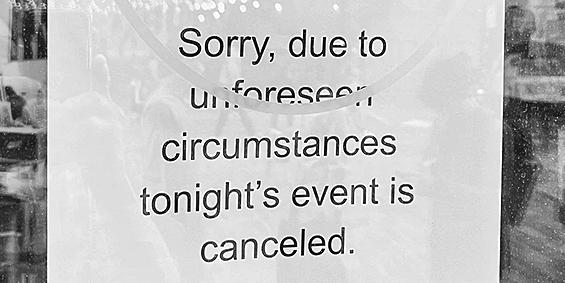
on everything, Andy, but …” Nothing more needed to be said. In those blessed 48 hours I was reminded of many important lessons. One is that there is the greatest strength in difference, not sameness; that there is more learning done in disagreement than there is in the staid uniformity of sloganeering; and that without being made to traverse the rocky terrain of civil discourse, we lose strength, atrophy and weaken as a society. I learned again that friends matter. I learned again that when you work in a community for 33 years as I have in Brooklyn, you build up the muscle of relationships forged in good times and bad. I learned again that I am so proud to be a Jew, to be a member of a most resilient people, who have persistently modeled to the world that argument is sacred, that argument is, in religious terms, for the Sake of Heaven. If there is purpose to the structure of our lives, in other words, if God demands of us that we find meaning in learning from books, ideas, argument and disagreement — holy and secular — then our learning is better, sharper, and deeper when we create
sparks of conflict.
I actually feel bad for the bookstore censor. What an intellectually flat world she must live in. What a diminishment of the mind’s potential. It just can’t be very fun to be that way. There is a story that the historian George Mosse’s students used to tell about the 1960s anti-war protests in Madison, Wisconsin. A number of George’s students were on the New Left and they were angry with him that he — a Jewish refugee from Nazi Germany — was not taking more forceful public stands against the war. Protesting in front of his house one morning and chanting that he was supporting a fascist regime, George stood out on his drive in bathrobe and pajamas engaging with his students over precisely which kind of fascism was he being accused of supporting? Liberal or conservative? German or Italian or French or Soviet or Spanish?
Words and the movements they represent matter. “This course is designed to rid you of your slogans,” George famously taught us. The driveway seminar became legend.
Oh to have the chance to engage this bookstore censor over which particular Zionism she was objecting to. Cultural? Socialist? Liberal? Revisionist? Religious? How much richer our night would have been.
I’ll save for another time the question of what this less-than24-hour-censorship means in the context of this horrific war between Israelis and Palestinians in Gaza and the West Bank. Without question there is a hideous antisemitism at play in general in the anti-war movement. And there is a hideous and fundamentally immoral othering of Jews who don’t subscribe to the cult-like demand that any Zionism be disavowed in order to exist in the company of the self-proclaimed exemplars of justice, commonality and peace. Some just want us gone.
But I was most deeply impressed with and moved by how quickly people came together from such diverse backgrounds; how vociferously ownership eventually condemned this censorship; and how people buying Josh’s book — to read, debate and argue — became the best response of all. Want to shut up a bigot? Beat them at an argument.
A version of this piece originally appeared on Water for Rocks, the author’s Substack. It is reprinted with permission. Rabbi Andy Bachman is a rabbi who has led congregations in Brooklyn and Manhattan.
The views and opinions expressed in this article are those of the author and do not necessarily reflect the views of JTA or its parent company, 70 Faces Media.
Jews and Arabs hoped to fill a truck with aid for Gaza civilians. We ended up filling 300.
At a recent visit with a Palestinian-Israeli friend in the Lower Galilee, where I live, I invited her to come to a local conference organized by Standing Together, a joint Jewish-Arab Israeli national activist movement working for peace, equality and justice, in which I have been involved for the past several years. My local chapter has about 700 members, almost twice as many as a year ago, before the war. There are seven other chapters throughout the country.
The movement was founded, in 2015, on this central principle: We can only create a better future for all people of both nations if we work together on equal footing, beginning here in Israel where Palestinian and Jewish Israeli citizens live side by side. Although many other joint movements have seriously struggled or even fallen apart during the course of this war, ours has grown and flourished. People are looking for this connection, especially now, and for a chance to work together to change our reality. It feels like the only hope.
As part of one of the breakaway sessions planned for the Standing Together conference, I was going to be facilitating a discussion about a government operation, carried out by the police under National Security Minister Itamar Ben-Gvir, to scare Israeli Arabs into silence and inaction over unrealized fears that Hamas would try to incite them to riot.
My friend knew what I was referring to. All Palestinian Israelis are well aware of the many stories of Israeli Arabs being arrested or forced to leave their jobs because of social media posts, or even just acts of public speaking, that express sympathy for Gazans or dare to outright condemn IDF actions in Gaza. She said she thought the cause important, but she did not want to come.
“I was an activist most of my life, since I was a student,” she said. “But I see no hope now for change, not with this government. And now this war, and the silencing, and the terrible organized crime in our community. I’ve decided to focus on my career and my family. I’ve given up.”
Standing Together’s original plan was to hire one big truck to go from one Arab town to another, across the country, collecting donations of supplies, which would then be transported across the border and distributed to Gazan civilians through an international organization. But already at the first site, the northern
Arab city of Sakhnin, it became clear more than one truck would be needed. At that first site alone, volunteers filled three trucks. I volunteered at the fourth collection site, at another northern Arab city, Umm El Fahem, where we collected 29 trucks-full of aid. It was amazing to see the line of cars, extending outside the city, all with supplies their drivers had purchased out of pocket — many who then joined in the unpacking and loading.
And what made it more moving, was that we were doing this together — Palestinian and Jewish Israelis of all ages, even
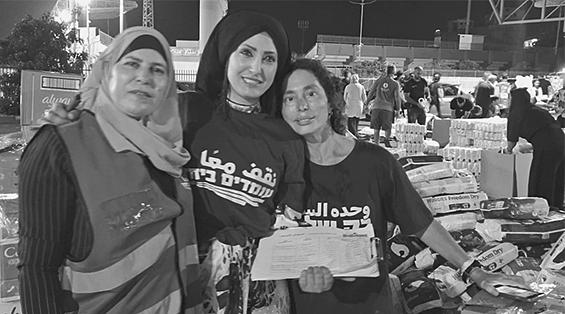
amid a war between our nations.
Before the war, back in January 2023, Standing Together organized the first mass demonstration against the government in Tel Aviv, drawing thousands of Arabs and Jews. I was exhilarated and hopeful to see such a large turnout, feeling the power of joining together to fight what we knew even back then would be a catastrophic government.
A week later, the Jewish-led anti-government demonstrations began, which alienated many potential Palestinian Israeli partners because of the very Jewish symbol chosen by the demonstrators — the Israeli flag. Nevertheless, over the months before Oct. 7, increasingly more Arab speakers were featured at the many weekly demonstrations across the country, and there was a move towards being more inclusive. A wider variety of protesters began showing up, including Standing Together groups, with our signature purple signs, messages
written in Arabic and Hebrew against the occupation and the Nation-State Law, and calling for true democracy for all.
In August 2023, a huge “March of the Dead” — organized and initiated by Arab-run organizations and partnership organizations like Standing Together — took place in Tel Aviv, to raise awareness about an organized crime wave that has led to the deaths of many Arab citizens, and demand action.
While I have been to various small Arab-led protests after Oct. 7, the only one where I saw thousands of Palestinian Israelis was the “March of Return,” a Palestinian nationalist march held once a year to commemorate the Nakba, their name for the “catastrophe” of Israel’s successful war for independence, although that was less of a demonstration and more of a annual solidarity march, somewhat like the Israeli Day Parade in Manhattan.
But if one adds up how many came to the eight official (and additional pop-up) sites during Standing Together’s humanitarian aid collection campaign, the number would be more like tens of thousands — if not more. By the end of the humanitarian aid drive, which was extended a few extra days to include a couple more sites, we filled 300 trucks with supplies. This is a stunning number, over 300 times what the organizers had anticipated. How to explain this extremely enthusiastic response to Standing Together’s call?
Giving to Gazans is an act of charity, but also of resistance, a way of protesting the ongoing war and the methods being used by the IDF and Hamas, which exact a price from common people. It is a safer way to protest, as long as Ben-Gvir does not act on his threats to expel participants, since it is one that does not require facing police or risking being arrested and blacklisted.
There is a temptation to focus on the Israeli Jews who are taking part in these actions, just as there is a temptation to equate Israeliness with Jewishness. However, we can’t hope to defeat this far-right government and the trend towards extreme Jewish nationalism in this country without our Arab citizens on board.
Too many people here — Arabs and Jews — are too despairing to stand up and demand change. But change will certainly not happen if we don’t stand up for it. And if we stand together, the chances are so much greater that it will.
Haviva Ner-David is rabbinic founder of Shmaya: A Mikveh for Mind, Body, and Soul, on Kibbutz Hannaton.
B’NAI ISRAEL SYNAGOGUE
618 Mynster Street Council Bluffs, IA 51503-0766
712.322.4705 www.cblhs.org
BETH EL SYNAGOGUE
Member of United Synagogues of Conservative Judaism 14506 California Street Omaha, NE 68154-1980
402.492.8550 bethel-omaha.org
BETH ISRAEL
SYNAGOGUE
Member of Union of Orthodox Jewish Congregations of America 12604 Pacific Street Omaha, NE. 68154
402.556.6288 BethIsrael@OrthodoxOmaha.org
CHABAD HOUSE
An Affiliate of Chabad-Lubavitch 1866 South 120 Street Omaha, NE 68144-1646
402.330.1800 OChabad.com email: chabad@aol.com
LINCOLN JEWISH COMMUNITY:
B’NAI JESHURUN
South Street Temple
Union for Reform Judaism 2061 South 20th Street Lincoln, NE 68502-2797
402.435.8004 www.southstreettemple.org
OFFUTT AIR
FORCE BASE
Capehart Chapel 2500 Capehart Road Offutt AFB, NE 68123
402.294.6244 email: oafbjsll@icloud.com
TEMPLE ISRAEL
Union for Reform Judaism (URJ) 13111 Sterling Ridge Drive Omaha, NE 68144-1206
402.556.6536 templeisraelomaha.com
LINCOLN JEWISH COMMUNITY:
TIFERETH ISRAEL
Member of United Synagogue of Conservative Judaism 3219 Sheridan Boulevard Lincoln, NE 68502-5236 402.423.8569 tiferethisraellincoln.org
Monthly Speaker Series Service, Friday, Sept. 13, 7:30 p.m. with our guest speakers, Carole and Wayne Lainof with a presentation on their recent trip to Israel. Welcome back our service leader is Larry Blass. Everyone is always welcome at B’nai Israel!
For information about our historic synagogue, please visit our website at www.cblhs.org or contact any of our other board members: Renee Corcoran, Scott Friedman, Rick Katelman, Janie Kulakofsky, Howard Kutler, Carole and Wayne Lainof, Ann Moshman, MaryBeth Muskin, Debbie Salomon and Sissy Silber. Handicap Accessible.
Services conducted by Rabbi Steven Abraham and Hazzan Michael Krausman.
IN-PERSON AND ZOOM MINYAN SCHEDULE: Mornings on Sundays, 9:30 a.m.; Mondays and Thursdays 7 a.m.; Evenings on Sunday-Thursday 5:30 p.m.
FRIDAY: Kabbalat Shabbat, 6 p.m. at Beth El & Live Stream.
SATURDAY: Shabbat Morning Service 10 a.m. at Beth El & Live Stream; Gaga Shabbat (Grades 3-7), 10 a.m.; Mah Jongg Shabbat, following services and lunch; USY Lock-In, 10 p.m.; Havdalah 8:20 p.m. Zoom only.
SUNDAY: BESTT (Grades K-7), 9:30 a.m.; A Journey Through the Shabbat Siddur, 10:30 a.m. with Hazzan Krausman; Hands-On Judaism, 11:15 a.m. with Hazzan Krausman.
TUESDAY: Mishneh Torah, 11:15 a.m.; Noah Feldman Class, 6 p.m. with Rabbi Abraham.
WEDNESDAY: BESTT (Grades 3-7), 4 p.m.; Hebrew High (Grades 8-12), 6 p.m.
THURSDAY: PJP Eretz Yisrael Zoom Series — Joshua Shanes, 7:30 p.m.
FRIDAY-Sept. 13: Kabbalat Shabbat, 6 p.m. at Beth El & Live Stream.
SATURDAY-Sept. 14: Shabbat Morning Service and Bar Mitzvah of Sam Bryan, 10 a.m. at Beth El & Live Stream; Jr. Congregation (Grades K-12), 10 a.m.; Havdalah, 8:10 p.m. Zoom only.
Please visit bethel-omaha.org for additional information and service links.
FRIDAY: Nach Yomi, 6:45 a.m.; Shacharit, 7 a.m.; Mincha/Kabbalat Shabbat, 7 p.m.; Candlelighting, 7:30 p.m.
SATURDAY: Shabbat Kollel, 8:30 a.m.; Shacharit 9 a.m.; Tot Shabbat 10:30 a.m.; Youth Class 10:45 a.m.; Tehillim, 6:20 p.m. at the Zivs; Soulful Torah, 6:35 p.m. with Rabbi Geiger; Mincha 7:20 p.m.; Laws of Shabbos/Kids Activity, 7:50 p.m.; Havdalah, 8:28 p.m.
SUNDAY: Shacharit 9 a.m.; Kinyan 9:40 a.m.; Mincha/Ma’ariv, 7:30 p.m.
MONDAY: Nach Yomi 6:45 a.m.; Shacharit 7 a.m.; Mincha/Ma’ariv 7:30 p.m.
TUESDAY: Nach Yomi, 6:45 a.m.; Shacharit, 7 a.m.; Kinyan, 6:55 p.m.; Mincha/Ma’ariv 7:30 p.m.
WEDNESDAY: Nach Yomi, 6:45 a.m.; Shacharit, 7
a.m.; Mincha/ Ma’ariv, 7:30 p.m.
THURSDAY: Nach Yomi, 6:45 a.m.; Shacharit, 7 a.m.; Character Development, 9:30 a.m.; Kinyan, 6:55 p.m.; Mincha/Ma’ariv, 7:30 p.m.; Parsha Class, 7:40 p.m.
FRIDAY-Sept. 13: Nach Yomi, 6:45 a.m.; Shacharit, 7 a.m.; Mincha/Kabbalat Shabbat, 7 p.m.; Candlelighting, 7:18 p.m.
SATURDAY-Sept. 14: Shabbat Kollel, 8:30 a.m.; Shacharit, 9 a.m.; Tot Shabbat, 10:30 a.m.; Youth Class, 10:45 a.m.; Tehillim, 6:20 p.m. at the Zivs; Soulful Torah, 6:15 p.m. with Rabbi Geiger; Mincha 7 p.m.; Laws of Shabbos/Kids Activity, 7:30 p.m.; Havdalah, 8:16 p.m.
Please visit orthodoxomaha.org for additional information and Zoom service links.
All services are in-person. All classes are being offered in-person and via Zoom (ochabad.com/academy). For more information or to request help, please visit www.ochabad.com or call the office at 402.330.1800.
FRIDAY: Shacharit 8 a.m.; Inspirational Lechayim, 5:45 p.m. with Rabbi and friends: Ochabad.com/ Lechayim; Omaha Young Professionals Shabbat Dinner; Candlelighting, 7:29 p.m.
SATURDAY: Shacharit, 9:30 a.m. followed by Kiddush and Cholent; Shabbat Ends, 8:27 p.m.
SUNDAY: Sunday Morning Wraps: Shacharit, 99:30 a.m., Video Presentation, 9:30 a.m. and Breakfast, 9:45 a.m.
MONDAY: Shacharit, 8 a.m.; Personal Parsha, 9:30 a.m.; Intermediate Biblical Hebrew Grammar, 10:30 a.m. with Prof. David Cohen; Parsha Reading, 6 p.m. with Prof. David Cohen; Translating Words of Prayer, 7 p.m. with David Cohen.
TUESDAY: Shacharit 8 a.m.; Translating Words of Prayer, 11 a.m. with David Cohen; Intermediate Biblical Hebrew Grammar, 6 p.m. with Prof. David Cohen; Introductory Biblical Hebrew Grammar, 7 p.m. with Prof. David Cohen.
WEDNESDAY: Shacharit 8 a.m.; Mystical Thinking (Tanya), 9:30 a.m.; Introductory Biblical Hebrew Grammar, 10:30 a.m. with Prof. David Cohen; Parsha Reading, 11:30 a.m. with Prof. David Cohen; Taste of Tradition — Tasting Event, 5 p.m.
THURSDAY: Shacharit 8 a.m.; Introduction to Alaphabet, Vowels & Reading Hebrew, 10 a.m. with Prof. David Cohen; Advanced Biblical Hebrew Grammar, 11 a.m. with Prof. David Cohen; Talmud Study (Sanhedrin 34), noon; Introduction to Alphabet, Vowels & Reading Hebrew, 6 p.m. with Prof. David Cohen; Kitzur Shulchan Aruch (Code of Jewish Law) Class, 7 p.m.
FRIDAY-Sept. 13: Shacharit, 8 a.m.; Inspirational Lechayim, 5:45 p.m. with Rabbi and friends: Ochaba d.com/Lechayim; Candlelighting, 7:17 p.m.
SATURDAY-Sept. 14: Shacharit, 9:30 a.m. followed by Kiddush and Cholent; Shabbat Ends, 8:15 p.m.
LINCOLN JEWISH COMMUNITY: B’NAI JESHURUN & TIFERETH ISRAEL
Services facilitated by Rabbi Alex Felch.
PAM MONSKY
JCRC Assistant Director
JCRCs, or Jewish Community Relations Councils, are organizations that work to build relationships and promote understanding between the Jewish community and other religious, ethnic, and civic groups. They often focus on advocating for social justice issues, combating antisemitism, and fostering interfaith dialogue and cooperation.
JCRCs operate at the local, regional, and national levels in communities around the world.
Guided by Jewish values, Omaha’s nonpartisan Jewish Community Relations Council works in common cause with other religious, racial, ethnic, and civic groups to foster a just, democratic, and pluralistic society.
All services offered in-person with live-stream or teleconferencing options.
FRIDAY: Erev Shabbat Service with Rabbi Alex, 6:30-7:30 p.m. at SST; Shabbat Candlelighting, 7:31 p.m.
SATURDAY: Shabbat Morning Service with Rabbi Alex, 9:30-11 a.m. at TI; Torah Study, noon on Parashat Shoftim via Zoom; Havdalah, 8:30 p.m.
SUNDAY: LJCS Classes, 9:30-11:30 a.m. at SST; Men’s Bike/Coffee Group, 10:30 a.m. at The Mill on the Innovation Campus. For more information or questions please email Al Weiss at albertw801@ gmail.com; Pickleball, 3-5 p.m. at TI. Anyone interested in playing or learning how to play can text Miriam at 402.470.2393. If there are enough interested people; we’ll play in the Social Hall.
WEDNESDAY: LJCS Hebrew School (Grades 3-7), 4:30-6 p.m. at SST.
THURSDAY: High Holidays Choir Rehearsal, 7-8:30 p.m. If you are interested in singing with the choir please contact our Music Director, Steven Kaup by email at MusicDirector@southstreettemple.org
FRIDAY-Sept. 13: Centennial Shabbat Service with Rabbi Alex, 7-8 p.m. at SST; Shabbat Candlelighting, 7:31 p.m.
SATURDAY-Sept. 14: Shabbat Morning Service with Rabbi Alex, 9:30-11 a.m. at TI; Torah Study, noon on Parashat Ki Teitzei via Zoom; Potluck Dinner and Family Game Night, 6 p.m. at SST. Please bring a dish to share. All ages are welcome; Havdalah, 8:20 p.m.
FRIDAYS: Virtual Shabbat Service, 7:30 p.m. every first and third of the month at Capehart Chapel. Contact TSgt Jason Rife at OAFBJSLL@icloud.com for more information.
In-person and virtual services conducted by Rabbi Benjamin Sharff, Rabbi Deana Sussman Berezin, and Cantor Joanna Alexander
FRIDAY: Drop in Mah Jongg, 9-11 a.m. In-Person; Shabbat B’yachad Service, 6 p.m. In-Person & Zoom.
SATURDAY: Torah Study 9:15 a.m. In-Person & Zoom; Shabbat Morning Service and Bar Mitzvah of Jacob Meyers, 10:30 a.m. In-Person & Zoom.
SUNDAY: Grades PreK-7, 9:30 a.m. In-Person; Kol Rina Rehearsal, noon In-Person.
TUESDAY: Kol Rina Rehearsal, 6 p.m. In-Person; Adult Prayer Hebrew: Level Bet (Part 1), 6 p.m. In-Person.
WEDNESDAY: Yarn It, 9 a.m.; Grades 3-6, 4:30 p.m. In-Person; Hebrew High: Grades 8-12 6 p.m. In-Person.
THURSDAY: The Zohar: Thursday Morning Class, 11 a.m. with Rabbi Sharff and Rabbi Azriel — In-Person & Zoom; The Barber of Little Rock, 7 p.m. In-Person, FRIDAY-Sept. 13: Drop in Mah Jongg, 9-11 a.m. InPerson; Shabbat Shira Service, 6 p.m. In-Person & Zoom.
SATURDAY-Sept. 14: Torah Study 9:15 a.m. In-Person & Zoom; Shabbat Morning Service, 10:30 a.m. InPerson & Zoom. Please visit templeisraelomaha.com for additional information and Zoom service links.

The JCRC advocates, educates, collaborates, and mobilizes action on issues important to the Jewish Community and greater community to fight antisemitism and hate in all its forms and promote the
security of Israel and Jews everywhere.
Two years ago, as the Jewish Community Relations Council (JCRC) was being formed, we conducted a community survey to determine the social justice issues that are most important to our Omaha Jewish community. Today, the JCRC is a
vital and thriving agency of the Jewish Federation of Omaha, working every day to fight antisemitism and advocating to meet the needs of the community and keep us safe.
Our world has changed since the spring of 2022 and we feel that now is the time to check back in with community members to determine how those changes may impact the way we feel about issues of civil rights and social justice.
Your thoughtful input is vital to the JCRC mission. The survey, conducted by New Sky Consultants, will take 5-7 minutes to complete. Please look for the survey in your email some time in September. Your responses are anonymous and data will be collected, analyzed and summarized by New Sky. Preliminary results of the survey will be presented to the community in mid-October with a full report projected to be completed and published before Dec. 31, 2024.
Morton Zuber, known as Mort, of Omaha, Nebraska passed away on Aug. 27, 2024 at age 102. A private burial service was held on Aug. 30, 2024 at Beth El Cemetery followed by a memorial service at Temple Israel, 13111 Sterling Ridge Drive, Omaha. He was preceded in death by his sister, Millie Bernstein; their parents, Herman and Bettie Zuber; and his brother-in-law, Harold Bernstein.
He is survived by his brother, Robert Zuber and sister-in-law Beverly Zuber, of Omaha; his nieces and nephews: Kay (Bruce) Goldstein of Minneapolis, John (Nancy) Bernstein of Greenwood Village, Colorado, Dr. Steven (Susan) Zuber of Omaha, and Amy (Robert) Garber of Glencoe, Illinois; as well as many great and great-great nephews and nieces who affectionally knew him as “Uncle Mort.”
Mort was preceded in death by Joie (Josephine) Simon, his loving partner of 25 years. Mort and Joie’s love story began when they were young, was interrupted for a number of decades, before they reunited in the golden years of their lives. Though they never married, Mort continued to be devoted to Joie, dining with her every night at the Blumkin Home in the final years of her life. Mort was born and raised in Hastings, Nebraska. He graduated from the University of Nebraska, Lincoln where he was inducted into The Innocents Society, which recognizes academic achievement, leadership and service to the university and community. In
Join us for our monthly speaker series service on Friday, Sept. 13 at 7:30 p.m. B’nai Israel will welcome back our service leader from an extended healthcare recuperation. Carole and Wayne Lainof will be presenting a program featuring their recent trip to Israel for their granddaughter’s wedding in Jerusalem. Photos will be shown and they will discuss what they saw and personally experienced during the time spent both in Jerusalem and Beit Shemesh. The congregation will be very happy to have our Service Leader, Larry back on the Bima. Remember everyone is always welcome at B’nai Israel Living History Synagogue!
If you do business with any of our advertisers, please tell them you saw their ad in the Jewish Press. It really helps us!

college, he was also president of the Sigma Alpha Mu fraternity and remained a supporter of that organization throughout his life. Mort served his country as an officer in the Army during the Second World War and was deployed to Italy after V-Day. He always considered himself lucky to have been spared having to serve in the Pacific Theater. One of Mort’s most meaningful recollections of his time in the Army was when he acquisitioned a Jeep and drove it to witness the Nuremburg trials and toured Eagles Nest.
After the war, Mort returned to Hastings where he joined his father Herman’s scrap metal business. Mort successfully ran the Zuber Company for 50 years before retiring to Omaha in 1995.
Mort was a lifelong Huskers fan. He enjoyed playing bridge with his many friends and traveling with Joie. He will be remembered by his family for his warmth and generosity, his stories from a spectacularly long life, his humility, and how he continued to live independently (and drive!) until he was 101. He was a blessing to all who knew him and he will be greatly missed.
Memorials may be made in Mort’s memory to the Rose Blumkin Jewish Home, 323 South 132nd Street, Omaha, NE 68154.
SUBMIT OBITUARIES TO THE JEWISH PRESS: Email the Press at jpress@jewishomaha.org; mail to 333 So. 132 St., Omaha, NE 68154; or online at online at www.omahajewishpress.com/site/forms/





HELLO NEBRASKA! Introducing www.nepublicnotices.com, a new public notice website presented as a public service by all Nebraska newspapers. Free access, fully searchable – because democracy depends upon open government and your right to know.
AFFORDABLE PRESS Release service. Send your message to 155 newspapers across Nebraska for one low price! Call 1-800369-2850 or www.nebpress.com for more details.
CLASSIFIED ADVERTISING in over 150 newspapers. Reach thousands of readers for $225/25 word ad. Contact the Jewish Press or call 1-800-369-2850.
FOR SALE - SERVICES
GOT TERMITES. We’ve killed them for over 42 years! Free over the phone quote. BEAR SERVICE. Call Kiley at 800-241-7179 EMAIL: bearmeyer1@gmail.com
FOR SALE - INSURANCE
DENTAL INSURANCE from Physicians Mutual Insurance Company. Coverage for 350 plus procedures. Real dental insuranceNOT just a discount plan. Do not wait! Call now! Get your FREE Dental Information Kit with all the details! 1-855-490-4149 www.dental50plus.com/81 #6258
FOR SALE - SENIORS
PORTABLE OXYGEN Concentrator? May be covered by Medicare! Reclaim independence and mobility with the compact design and long-lasting battery of Inogen One. Free information kit! Call 855-385-3580.
HOME SERVICES
DOES YOUR basement or crawl space need some attention? Call Thrasher Foundation Repair! A permanent solution for waterproofing, failing foundations, sinking concrete and nasty crawl spaces. FREE Inspection & Same Day Estimate. $250 off ANY project with code GET250. Call 1-844-958-3431.
THE BATHROOM of your dreams in as little as 1 day. Limited Time Offer - $1000 off or No Payments and No Interest for 18 months for customers who qualify. BCI Bath & Shower. Many options available. Quality materials & professional installation. Senior & Military Discounts Available. Call Today! 1-855-451-2244.
BECOME A Published Author. We want to Read Your Book! Dorrance Publishing-Trusted by Authors Since 1920 Book manuscript submissions currently being reviewed. Comprehensive Services: Consultation, Production, Promotion and Distribution Call for Your Free Author’s Guide 1-877-858-2822 or visit dorran ceinfo.com/Nebraska. WANTED
ANGELA BROWN
The 2024 Goldstein Lecture in Human Rights will be held on Thursday, Sept. 26 from 7-8:30 p.m. The lecture, Humanitarian Law: Reducing Brutality in War Since the War on Terror, will be delivered by Dr. Samuel Moyn, J.D., Chancellor Kent Professor of Law and History at Yale University.
Moyn will address the origins of humanitarian law and examine recent attempts to impose legal rules on the conduct of war with the goal of reducing war’s brutality. From the start, some thinkers have worried that implementing laws of war would backfire, or even make war permanent. The talk will reflect on the implications of recent wars since 9/11/2001, examining whether these worries were misplaced or well-founded.
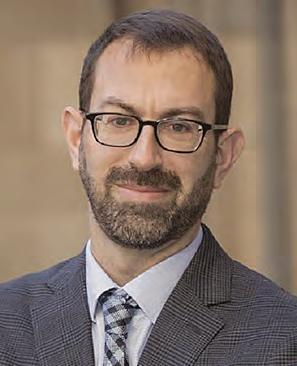
Dr. Moyn ‘s areas of expertise in legal scholarship include international law, human rights, the laws of war, and legal thought in historical and current perspective. In addition to multiple scholarly books and articles, his work has appeared in venues such as Boston Review, the Chronicle of High Education, Dissent, The Nation, The New Republic, The New York Times, and The Wall Street Journal. His newest book is Humane: How the United States Abandoned Peace and Reinvented War (Farrar, Straus, and Giroux, 2021).
This lecture is an in-person event, with a livestream option. It will be held at the University of Nebraska at Omaha’s Barbara Weitz Community Engagement Center. It is free to all.
Those who wish to view the livestream can register here. The lecture will also be recorded.
The Goldstein Lecture series began in 1999 through the generosity of Leonard and Shirley Goldstein and the Goldstein family. It is organized through UNO’s Department of Religious Studies. Each year, the series brings a distinguished scholar,
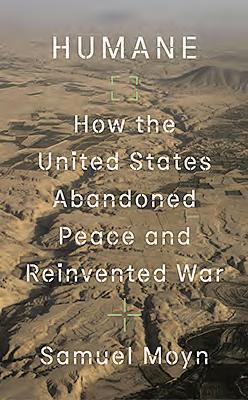
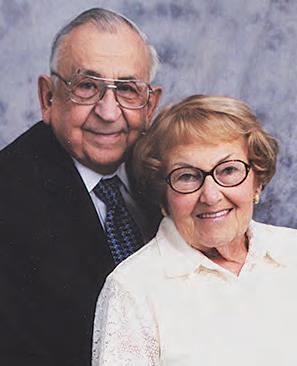
artist, lawyer, or other expert on human rights to speak at UNO. In addition to Religious Studies, this year’s lecture is cosponsored by the Goldstein Center for Human Rights, UNO’s Department of History, and the Goldstein Family Community Chair in Human Rights.
It is part of this year’s Human Rights Week at UNO, organized by the Community Chair. Event and registration information for Human Rights Week can be found on our website at https://www.unomaha.edu/college-of-arts-and-scien ces/goldstein-center-for-human-rights
The Leonard and Shirley Goldstein Center for Human Rights (GCHR) at the University of Nebraska at Omaha was established Dec. 1, 2017. It is a faculty led unit in the College
We invite you to attend a special commemoration honoring the victims of the October 7th attacks and the strength and resilience of the Israeli people. Together we will stand in solidarity and look toward a brighter future.
of Arts and Sciences designed to facilitate and catalyze increased human rights-related academic offerings, research, as well as local and international community outreach, partnerships and programming. The GCHR builds on existing strengths across multiple UNO colleges and departments, and a longstanding lectureship in human rights sponsored by UNO’s Religious Studies program. It is intended to foster the interdisciplinary partnerships essential to the study of human rights. The GCHR was created in tandem with the new Goldstein Family Community Chair in Human Rights.
The GCHR is a faculty-governed, nonpartisan, nonsectarian organization that promotes the understanding of issues through teaching, research and creative activity, and community engagement both locally and globally. Goals include the following:
To provide a forum to explore the complexities of human rights, building on existing strengths and interests of faculty and students at UNO;
To provide support for teaching and curricular development related to human rights;
To provide support for faculty and student research, creative activity, and community engagement projects related to human rights;
To provide transformative experiences for students through engaged learning;
To identify collaborative opportunities with faculty and/or units of other campus within the University of Nebraska system;
To work with local, regional, national, and global policymakers to raise awareness and understanding of human rights issues.
For questions and more information, please contact Staci Geis at unoreligion@unomaha.edu
Monday, October 7, 2024 7:30 PM
